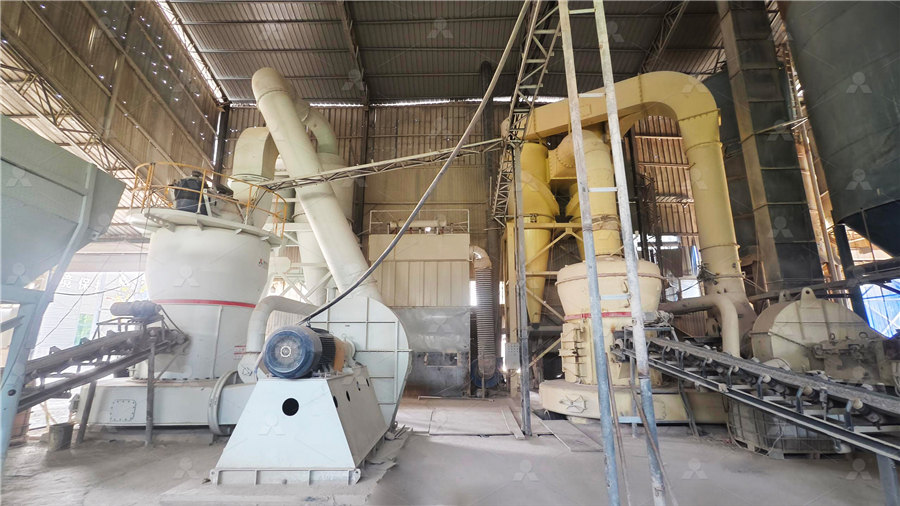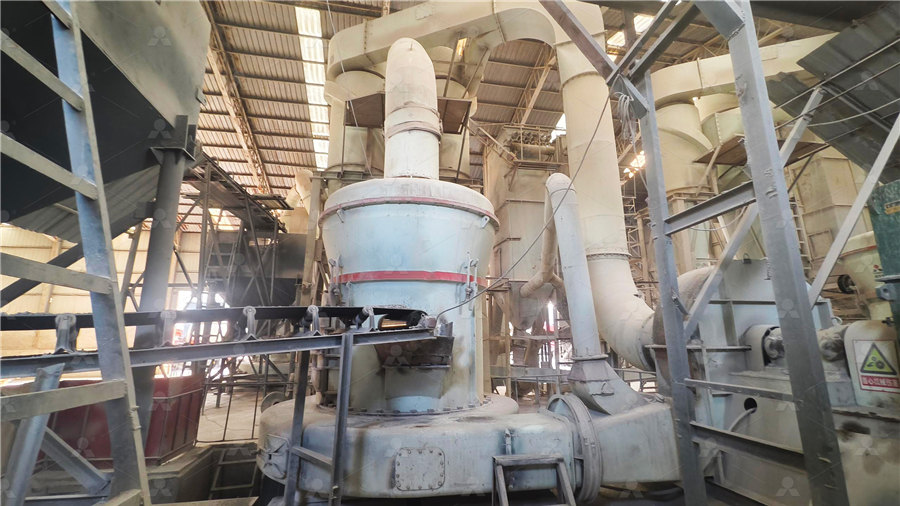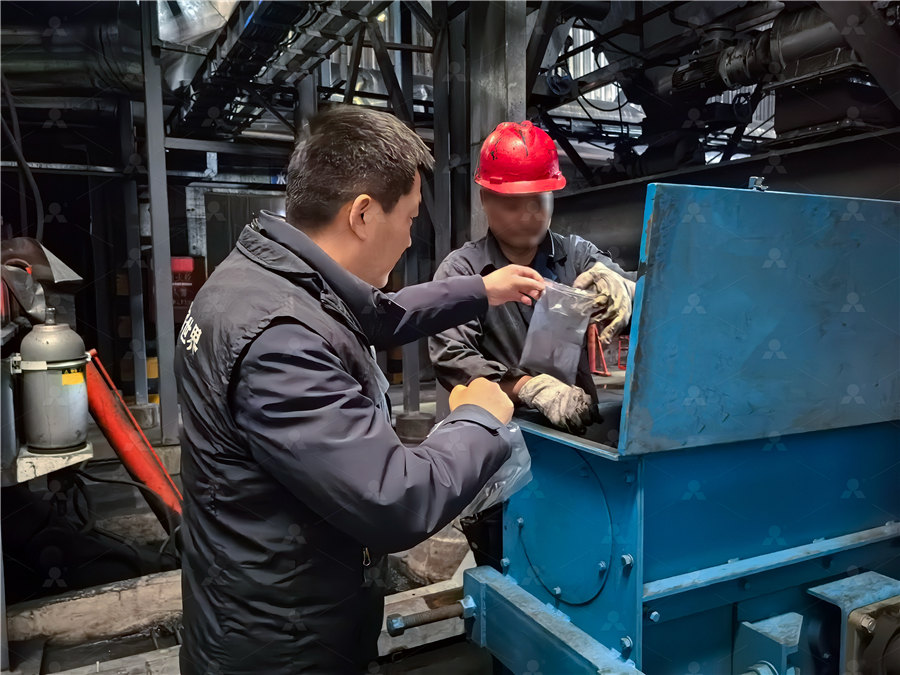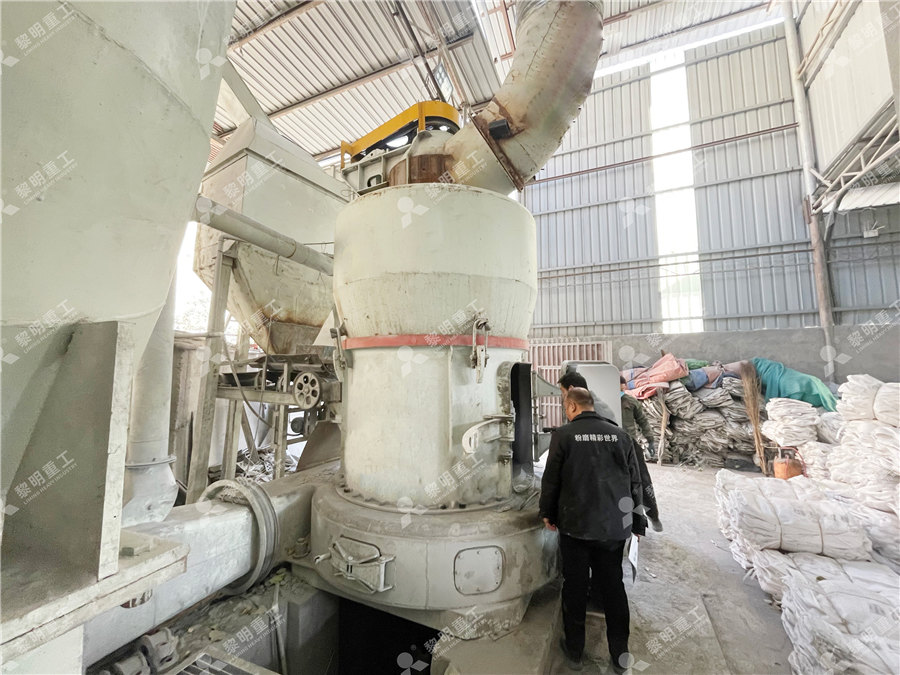
Iron oxide processing and production
.jpg)
Coprecipitation synthesis of stable iron oxide nanoparticles with
2020年11月1日 Coprecipitation is by far the most common synthesis for magnetic iron oxide nanoparticles (IONPs), as cheap and environmentally friendly precursors and simple 2021年5月18日 Thereby, in this chapter, we will cover the main characteristics of iron oxides with a focus on preparation processes, physicochemical properties, and their relationship with Synthesis, Properties, and Applications of Iron Oxides: Versatility 2023年2月22日 We report a lowtemperature, electrochemical cell that consumes lowcost and abundant iron oxide and seawater, while coproducing NaOH and Cl2 with industrially relevant current densitiesElectrochemical ChlorIron Process for Iron Production 2020年2月1日 Optimization studies were carried out in the production of γFe2O3 nanoparticles by using coprecipitation method Iron (II) chloride and iron (III) chloride were used as Production of Iron Oxide Nanoparticles by CoPrecipitation
.jpg)
(PDF) Diversity of Iron Oxides: Mechanisms of
2023年4月27日 Synthetic compositions with iron oxides are produced with the use of various techniques and widely used for scientific and applied purposes This review considers an attempt to classify allThe production of iron from its ore involves a redox reaction carried out in a blast furnace The furnace is filled at the top with the iron ore oxide most commonly hematite (\(Fe2O3\)) but Iron Production Chemistry LibreTexts2023年3月14日 Zou et al electrochemically reduced iron oxide to iron in strong alkaline solutions at a low temperature and studied the influence of experimental parameters, such as Research progress in the preparation of iron by electrochemical 2013年5月8日 Scientists have long dreamt of converting molten iron oxide to iron and oxygen using electricity An anode material that withstands the high temperatures and corrosive Iron production electrified Nature
.jpg)
Producing iron from salt water and iron oxide
2024年2月8日 A new lowtemperature electrochemical process that produces metallic iron from iron oxide and saltwater could help clean up steelmaking’s act (Joule 2024, DOI: 101016/jjoule202401001)Resource Recovery and Recycling from Metallurgical Wastes S Ramachandra Rao, in Waste Management Series, 2006 98 Production of Ceramic Tiles from Iron Ore Tailings Current practice of washing iron ore before it is processed for extractive metallurgical operation results in three products, coarse ore lumps with sizes in the range 1080 mm, which are directly charged Iron Ore Processing an overview ScienceDirect Topics2021年3月20日 This work introduces an innovative, sustainable, and scalable synthesis of iron oxides nanoparticles (NPs) in aqueous suspension The method, based on ion exchange process, consists of a onestep procedure, time and New Sustainable, Scalable and OneStep Synthesis of 2020年3月19日 Production of Iron Oxide Nanoparticles by CoPrecipitation method with Optimization Studies of Processing Temperature, pH and Stirring Rate(PDF) Production of Iron Oxide Nanoparticles by Co
.jpg)
Synthesis, Properties, and Applications of Iron Oxides: Versatility
2021年5月18日 21 Iron (III) Oxides Iron (III) oxide is, of course, a compound that exhibits four different crystalline polymorphs: αFe 2 O 3, βFe 2 O 3, γFe 2 O 3, and εFe 2 O 3Hematite and maghemite usually appear in nature, while beta and epsilon structures are generally synthetic oxides [10, 11]In general, the iron (III) oxides anions arrange in closepacked structures, 2023年11月1日 One of the developments that become increasingly attractive is the “powertoiron” process [8], whereby the (renewable) oxide power is intensively utilized to produce valuable iron products via an electrolysis process at both high and low temperaturesFor the hightemperature approach, the socalled molten oxide electrolysis (MOE), direct iron production is Comparative study of electroreduction of iron oxide using acidic 2017年7月7日 Application of limestone and lime in iron and steel plant During the production of iron by blast furnace (BF) route, limestone is added either in the process of sintering or as a direct feed in the blast furnace Limestone is normally added during ironmaking for obtaining either neutral or slight basic BF slagIts Processing and Application in Iron and Steel IndustryElectrochemical ChlorIron Process for Iron Production from Iron Oxide and Seawater Berkley B Noble,12 Louka J Moutarlier,12 Paul A Kempler12* 1Department of Chemistry and Biochemistry, University of Oregon, Eugene, OR 97403 2Oregon Center for Electrochemistry, University of Oregon, Eugene, OR 97403 *Correspondence: pkempler@uoregonElectrochemical ChlorIron Process for Iron Production from Iron Oxide

New Approaches in Synthesis and Characterization Methods of Iron Oxide
2022年1月5日 Recent years have witnessed an extensive application of iron oxide nanoparticles within a wide variety of fields, including drug delivery, hyperthermia, biosensing, theranostics, and cell and molecular separation Consequently, synthesis and characterization methods have continuously evolved to provide the possibility for controlling the physicochemical and 2018年5月1日 Iron oxide bearing wastes (IOBS) are produced at every part of processing stage of sinter, molten iron and steel production They are hard to handle and in many cases are stockpiled only to be a Factors Affecting Ballability of Mixture Iron Ore Concentrates and Iron Originally, the iron was collected in pools called pigs, which is the origin of the name pig iron Figure \(\PageIndex{1}\): A Blast Furnace for Converting Iron Oxides to Iron Metal (a) The furnace is charged with alternating layers of iron ore (largely Fe 2 O 3) and a mixture of coke (C) and limestone (CaCO 3)233: Metallurgy of Iron and Steel Chemistry LibreTexts2023年2月22日 Production from Iron Oxide and Seawater Berkley B Noble, 12 Louka J Moutarlier, 12 Paul A Kempler 1 2* 1 Department of Chemistry and Biochemistry, University of Oregon, Eugene, OR 97403Electrochemical ChlorIron Process for Iron

Iron (Fe) Ore Minerals, Occurrence » Geology Science
2023年5月7日 Steel production: Iron is a key ingredient in the production of steel, (FeO(OH)): Goethite is an iron oxide hydroxide mineral that often occurs as a weathering product of other ironbearing minerals, such as hematite and The main pollutants emitted in iron and steel production are oxides of nitrogen and sulphur oxides Material metabolism and environmental emissions of BFBOF and EAF steel production routes Mineral Processing and Extractive (PDF) NOx Emission in Iron and Steel Production: A 2017年1月1日 Production of red iron oxide pigment based on haematite ores of the Yakovlevskoe deposit is promising and it makes it possible to satisfy the demand for high quality and inexpensive pigment(PDF) Effective Processing of the Iron Ores ResearchGateIron processing Smelting, Refining, Alloying: The primary objective of iron making is to release iron from chemical combination with oxygen, and, since the blast furnace is much the most efficient process, it receives the most attention here Alternative methods known as direct reduction are used in over a score of countries, but less than 5 percent of iron is made this wayIron processing Smelting, Refining, Alloying Britannica
.jpg)
A narrative review of the synthesis, characterization, and
2023年10月10日 Mechanochemical nanoparticle processing of iron/iron oxide is a novel technology for iron ore production and characterization The method combines concurrent procedures that combine ballmilling and solidstate displacement methodologies with a low energy demand and a high propensity toward environmental friendliness [ 82 ]2016年3月30日 In book: Encyclopedia of Iron, Steel, and Their Alloys (pppp 10821108) Chapter: i) Direct Reduced Iron: Production; Publisher: CRC Press, Taylor and Francis Group, New York(PDF) i) Direct Reduced Iron: Production ResearchGate2013年2月23日 Recrystallization of iron oxides is essentially a physical process in which smaller particles consolidate into larger ones with the loss of surface energy During the recrystallization of iron oxides, continued growth of iron oxide crystals imparts sufficient strength During the process, the grain growth for hematite starts at around 1100 deg CIntroduction to Iron ore Pellets and Pelletizing processes2018年7月11日 Probably due to large national land area and multiperiod orogeny, from the view of metallogeny, lots of iron deposits developed in China, and the proven total reserves of iron ores are relatively abundant, but mainly lowgrade ores For years, China’s iron ore reserves are far from being able to meet the requirement of rapid development of steel industry China is the The Chinese Iron Ore Deposits and Ore Production IntechOpen

Iron Ore Tailings: Characterization and Applications
2021年1月1日 the gross production of iron ore in 2019 in Brazil was The main iron oxides phases presented in IOT are hematite of processing the ore The iron compounds present in the 2020年6月1日 CoPrecipitation Synthesis of Stable Iron Oxide Nanoparticles with NaOH: New Insights and Continuous Production via Flow Chemistry June 2020 Chemical Engineering Journal 399:(PDF) CoPrecipitation Synthesis of Stable Iron 2021年1月4日 Until the late 19th century iron oxide pigments were obtained wholly from natural materials, generally with little alteration other than physical purification In some cases roasting or calcination was also carried out However, beginning in the first part of the 20th century, chemical methods were developed for synthetic production of commercial iron oxidesIron Oxide Pigments 911Metallurgist2021年12月16日 For several decades, the metallurgical industry and the research community worldwide have been challenged to develop energyefficient and lowcost titanium production processes The expensive and energy Titanium: An Overview of Resources and

Optimization of Hydrogen Utilization and Process Efficiency in the
2024年10月15日 It is known that the reactions in the hydrogenbased direct reduction of iron oxide can proceed in two or three stages, depending on the furnace temperature [] When the temperature is below 570 °C, direct reduction of Fe 2 O 3 → Fe 3 O 4 → metallic iron (Fe) takes place, regardless of the type of reducing gas At temperatures above 570 °C, Fe 3 O 4 → FeO Fine/micronsized iron oxide particulates are incidentally released from a number of industrial processes, including iron ore mining, steel processing, welding, and pyrite production et al Oxidative stress markers are elevated in exhaled breath condensate of workers exposed to nanoparticles during iron oxide pigment production JPotential Toxicity and Underlying Mechanisms Associated with 2023年4月5日 The blast furnace and direct reduction processes have been the major iron production routes for various iron ores (ie goethite, hematite, magnetite, maghemite, siderite, etc) in the past few (PDF) Recent Trends in the Technologies of the Direct2024年1月24日 JovičevićKlug et al 4 report a process for extracting iron (Fe) from red mud — a waste product of aluminium production that consists of iron(iii) oxide (Fe 2 O 3) mixed with the oxides of Iron extracted from hazardous waste of aluminium production
.jpg)
Effect of composition and processing conditions on the direct
2024年8月1日 In this paper, HSC software is used to estimate the effects of composition and processing conditions on the reduction behavior of iron oxide pellets, ie, hematite (Fe 2 O 3), magnetite (Fe 3 O 4), wustite (FeO), pure iron (Fe), and iron carbide (Fe 3 C), in a wide temperature range from room temperature (RT) to 1000°C in the presence of H 2 and CO Keywords: spherical iron powder, metal injection moulding, hydrogen reduction, iron oxide, metal powder production, powder processing, iron oxide 1 Introduction In recent years, major efforts have been undertaken to optimize the production of fine metal powders However the manufacturing costs are still on a high levelNew Processing Route for Production of Fine Spherical Iron 2024年6月21日 The steel industry is one of the main contributors to global greenhouse gas emissions, responsible for about 7 to 9% of the world’s total output The steel sector is under pressure to move toward netzero emissions by reducing its consumption of coke as the main method of reducing ironrich feed materials to iron Due to its welldeveloped synthesis Iron Oxide Direct Reduction and Iron Nitride Formation Using Resource Recovery and Recycling from Metallurgical Wastes S Ramachandra Rao, in Waste Management Series, 2006 98 Production of Ceramic Tiles from Iron Ore Tailings Current practice of washing iron ore before it is processed for extractive metallurgical operation results in three products, coarse ore lumps with sizes in the range 1080 mm, which are directly charged Iron Ore Processing an overview ScienceDirect Topics
.jpg)
New Sustainable, Scalable and OneStep Synthesis of
2021年3月20日 This work introduces an innovative, sustainable, and scalable synthesis of iron oxides nanoparticles (NPs) in aqueous suspension The method, based on ion exchange process, consists of a onestep procedure, time and 2020年3月19日 Production of Iron Oxide Nanoparticles by CoPrecipitation method with Optimization Studies of Processing Temperature, pH and Stirring Rate(PDF) Production of Iron Oxide Nanoparticles by Co2021年5月18日 21 Iron (III) Oxides Iron (III) oxide is, of course, a compound that exhibits four different crystalline polymorphs: αFe 2 O 3, βFe 2 O 3, γFe 2 O 3, and εFe 2 O 3Hematite and maghemite usually appear in nature, while beta and epsilon structures are generally synthetic oxides [10, 11]In general, the iron (III) oxides anions arrange in closepacked structures, Synthesis, Properties, and Applications of Iron Oxides: Versatility 2023年11月1日 One of the developments that become increasingly attractive is the “powertoiron” process [8], whereby the (renewable) oxide power is intensively utilized to produce valuable iron products via an electrolysis process at both high and low temperaturesFor the hightemperature approach, the socalled molten oxide electrolysis (MOE), direct iron production is Comparative study of electroreduction of iron oxide using acidic
.jpg)
Its Processing and Application in Iron and Steel Industry
2017年7月7日 Application of limestone and lime in iron and steel plant During the production of iron by blast furnace (BF) route, limestone is added either in the process of sintering or as a direct feed in the blast furnace Limestone is normally added during ironmaking for obtaining either neutral or slight basic BF slagElectrochemical ChlorIron Process for Iron Production from Iron Oxide and Seawater Berkley B Noble,12 Louka J Moutarlier,12 Paul A Kempler12* 1Department of Chemistry and Biochemistry, University of Oregon, Eugene, OR 97403 2Oregon Center for Electrochemistry, University of Oregon, Eugene, OR 97403 *Correspondence: pkempler@uoregonElectrochemical ChlorIron Process for Iron Production from Iron Oxide 2022年1月5日 Recent years have witnessed an extensive application of iron oxide nanoparticles within a wide variety of fields, including drug delivery, hyperthermia, biosensing, theranostics, and cell and molecular separation Consequently, synthesis and characterization methods have continuously evolved to provide the possibility for controlling the physicochemical and New Approaches in Synthesis and Characterization Methods of Iron Oxide 2018年5月1日 Iron oxide bearing wastes (IOBS) are produced at every part of processing stage of sinter, molten iron and steel production They are hard to handle and in many cases are stockpiled only to be a Factors Affecting Ballability of Mixture Iron Ore Concentrates and Iron
.jpg)
233: Metallurgy of Iron and Steel Chemistry LibreTexts
Originally, the iron was collected in pools called pigs, which is the origin of the name pig iron Figure \(\PageIndex{1}\): A Blast Furnace for Converting Iron Oxides to Iron Metal (a) The furnace is charged with alternating layers of iron ore (largely Fe 2 O 3) and a mixture of coke (C) and limestone (CaCO 3)













